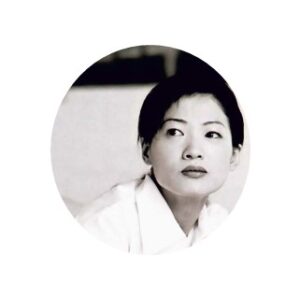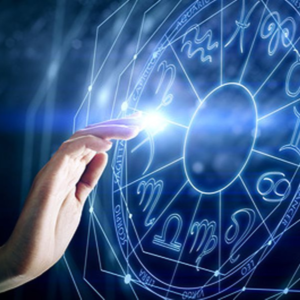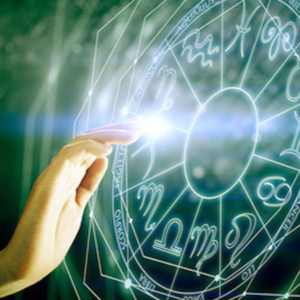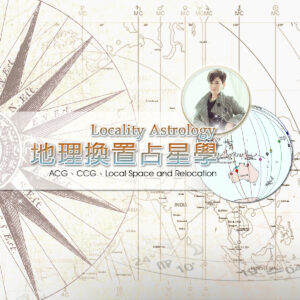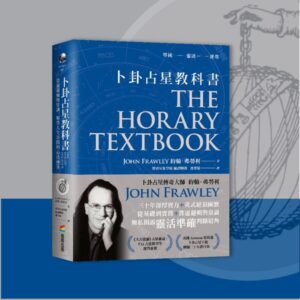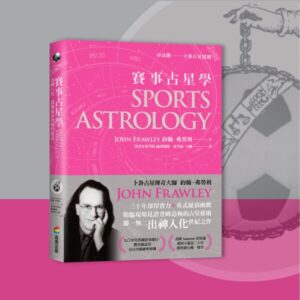發布日期:2022年11月02日
「天王星、海王星與冥王星象徵意義的起源調查」第五集發布後(兩個月前),最近才隱約想起作者蘇.沃德(Sue Ward)這個眼熟的名字。以前當我還在秦瑞生老師門下時,他曾經提過這位占星家。當時能在網路上找到的資料不多,也就作罷,沒想到去年(2021年)卻因為三王星的文章而結了緣。
蘇.沃德的三王星論文,無論過去或現在,顯然激怒了不少現代學派的占星師,但實話實說,這一系列文章發布後,學院臉書追蹤人數是增加的,那意味著:不少占星學友對三王星的占星效力同樣感到懷疑、或是想進一步了解它們象徵意義的來源。至於我呢?依據個人研究心得,三王星的占星效力是有的,但更多是在世運議題對世代的影響,之於個人議題,則須有節制地應用;但這僅只是我個人的看法。
蘇.沃德?這二十年來,其他占星家提出的三王星論述也不少,這些是否改變了她的看法?應該是沒有,否則二十年前相同的文章也不會再次出現在2021年的NCGR地心宇宙調查年鑑。但是,這也僅只是我個人的揣測,所以決定電郵訪問她。
以下這篇電郵訪談是在2022年9-10月間緩慢進行,期間也邀請她來為我們就卜卦占星學的主題進行演講。讀者朋友若是好奇蘇.沃德僅用七顆古典行星進行占星諮詢的技術手法,歡迎持續關注我們卜卦占星系列講座資訊。
MK:親愛的沃德女士,再次感謝您允許我的團隊翻譯您的文章。如果我的理解正確,這篇文章是 2002 年首次發表,2021年重新在 NCGR 年鑑期刊上發表。因為已經過去二十年了,我可以透過電子郵件採訪您幾個問題作為補充嗎?
SW:請把你的問題寄給我,我會盡力回答。
MK:您是否曾經嘗試在占星實踐中使用三王星(天王星-海王星-冥王星)?有多長時間?有什麼幫助嗎?
SW:我早年一開始是研習現代占星。首先,我參加了私人課程(本命),然後我報讀了英國占星學院的中階課程(本命)。大約在同一時間,或過了不久,我報讀了奧利維亞.巴克萊(Olivia Barclay)的卜卦占星認證課程。在這段期間的大部分時間裡,大約六年吧,我一直使用新行星(譯註:指三王星),即使跟隨奧利維亞之後也是如此。那時我和許多人一樣,相信它們應當納入星盤,並且必須被使用;但隨著我持續研究傳統占星學,很明顯的,它們毫無用處。我知道這聽起來很唐突,但這種體認並非突然發生。如果將它們從星盤中移除,那麼占星家將被迫專注於研究七顆傳統行星,也正是要從這一點切入,感覺才會開始變得清晰。占星盤非常擁擠,所以,這時的占星學(譯註:指星盤狀態),很容易就把某件事錯認為另一件事。因此,如果你試圖從本命星盤來判斷死亡,試著不要查看冥王星,去觀察土星和第八宮的主星吧。
MK:奧利維亞.巴克萊和 QHP卜卦占星課程在占星界相當知名。如果沒有巴克萊女士重新出版《基督教占星學》的貢獻,人們鮮少知道威廉.里利(William Lilly)。值得慶幸的是,中文版第一卷在兩年前已經出版,現在,更多亞洲學生可以研習他的著作。但是,關於巴克萊女士,她似乎在她的著作——《卜卦占星的再發現:古典占星研究》(1990)使用了三王星。我們是不是可以說,您所採用的卜卦占星方法是遵循里利,而不是巴克萊?里利的方法是否有任何使您感到困惑的地方?
SW:是的,這是真的。我不得不透過密切追隨《基督教占星學》來從頭開始、重新學習占星學;但是,我學到了大量的知識,並且改變了我早期沿襲現代占星所慣用的方法。
《基督教占星學》所提供的某些方法可能會使人感到困惑,尤其當他隔了幾頁,又註記相反意見的時候。然而,那時里利大部分是在報導,他整理了大量的資料,然後將其濃縮到《基督教占星學》,所以,會發生這樣的事並不奇怪。其中他的一兩位作者意見相左,而他忽略了這種分歧。然而,他可能是希望我們注意到這種矛盾,所以當他提出他的意見或經驗時,幾乎總是註記,而且,毫無疑問的,這些案例星盤向我們展示了他如何將所學的知識應用其中。
MK:抱歉,我不明白「他的一兩位作者」的意思。您是指其他不同意威廉.里利的當代占星家嗎?
SW:不,是里利作為他的(技法)來源的文獻作者。因為他是在報導過去眾多作者的記述,所以在某些情況下,這些作者的意見相左是必然的。也因為他使用了如此多的資料來源,里利會忽略這些分歧就不足為奇了。
MK:在過去二十年裡,占星界已經發布了一些研究結果。您認為這些可以作為三王星有其必要的證明嗎?
SW:不,新行星在占星學已經死了,這沒有任何改變。光,才是關鍵,不是望遠鏡。
MK:您是指人類肉眼可見的狀態嗎?
SW:是的。透過望遠鏡觀察時,眼中的畫面就變了。他們在十七世紀擁有望遠鏡,若不是,就是十六世紀。
MK:同意。光是關鍵。在我的研究中,我發現每顆行星的日相階段都顯示出它們可靠的變化和效應,但三王星也是如此。所以,我們是否可以說,三王星可能具有占星學術上的效應,只是不像神智學占星家所定義的那樣?
SW:不,我不這麼認為。正如我所說的,它們在占星學已經死了,因為沒有我們可感知到的光。我並沒有打算說服人們不要使用它們,那是他們的決定,而且我對此不感興趣;但我們必須了解這樣的情況。
MK:在您看來,現代或心理占星學有什麼優勢或貢獻嗎?
SW:傳統也是「心理的」,只是當時不叫心理。人類從來沒有過那種——沒有個性、氣質、情感、心態……的時候。傳統占星家也可以判斷這些問題,並描繪出任何人的性格、優勢和劣勢。
MK:這倒是真的。他們只是用不同的辭彙和形式談論同一件事。與靈魂占星學一樣,人類的靈魂並不是在二十世紀才突然出現,而是人類出現時便已存在。在傳統占星學中,Psyche and Daemon的理論(兩個發光體的希臘點)確實提到了這種靈性話題。然而,儘管埃及人談論復活、佛教談論轉世,我卻沒有在古代占星文本中看到任何關於轉世的案例。您相信轉世嗎?您認同將占星技術運用在這個主題嗎?
SW:同樣的,在我所有研究中也從未見過這個主題。我對輪迴持開放態度:有可能,但無法證明。
我不相信占星學可以在這方面提供幫助。這些年來我聽說過很多嘗試,但從未聽聞任何一個是真實的——那又怎麼可能?
MK:您是“William Lilly – Magician Astrologer & Adept” 的共著者,所以您一定比我們更了解威廉.里利。您如何看待威廉.里利和艾倫.里奧在星體魔法(Astral Magic)、天使學研究(Angelic study)當中的關聯呢?
SW:據我所知,二者沒有任何關聯。里奧是一位通神論者(Theosophist),對於這些研究他們的思想流派是多種事物的混合體。而里利的研究內容,則可能是稱為「中世紀魔法」的範疇,他所關注的,是包括印記(sigils)和護符(talismans)的驅動魔法,雖然里奧的想法有時受此影響,但也非常不同。至少就我的理解是如此。
MK:這很有趣。據我所知,通過印記和護符來驅動星體意識的「中世紀魔法」更像是基督徒眼中的異教。那麼為什麼威廉.里利會將他的書命名為《基督教占星學》呢?
SW:是的,教會對於魔法實踐總是非常有疑慮。你會從里利的書目中發現到,他閱讀了許多「阿拉伯」和猶太作家的著作;如果他的書過於偏向「伊斯蘭」,那他就會受到批評。此外,他和其他人一樣,會考量到要表現出占星學在基督教規範中的正當性——他是虔誠的。
MK:您呢?威廉.里利在這方面對您有影響嗎?您學過中世紀魔法嗎?除了進行分析前徒手計算天宮圖,那在判斷卜卦盤之前,您會做任何儀式或祈禱嗎?
SW:我研究過赫密士科學(the Hermetic sciences),並發現它們完整了我的占星教育。我現在使用電腦計算所有星盤,除非要教導別人如何計算。
學習占星學會教導一個人如何與上天對話。看看里利寫給學生的信——一篇最重要的參考資料。一旦領悟,你就永遠不會失去它,並且始終保持「聯繫」,尤其是在使用占星的時候。
MK:我有您 2022 年出版的新書”Sue ward’s Collected Essays-Reflection on Traditional Astrology”。這是一本合集,我從書中發現您在 1998 年至 2003 年期間寫的許多文章,包括我們最近介紹給讀者那一篇——「天王星、海王星和冥王星象徵意義的起源調查」。當時是否有什麼難忘事件鼓勵了您的寫作,尤其是對三王星象徵意義的深度歷史考察?
SW:是的,那是非常多產的一段時期!就那篇文章的目的而言,是我已經厭倦了占星家爭論是否該採用新行星,並且告訴我天王星至少有些作用,還說他們已經證明了這一點。我只能從實踐占星學的角度來談論它們,否則我不知道它們的出處究竟從何而來,所以我決定要找出答案;我原以為2000字左右就能搞定……
我曾經要求他人與學生,只能以事件或行為來證明它們的實用性,而不能以其他任何理由——但證據從未出現過。
MK:您的文章對我來說非常珍貴,然而,它激怒了許多受現代理論教育的占星家或學生。所以我這問題是取自他們的立場。
您如何看待占星學從希臘化時期,經過中世紀時期,然後到文藝復興時期的演變?例如,從整宮制到象限宮位制,從星座相位到角度相位?另外,還有數不盡的阿拉伯點?
SW:從古典到中世紀,再到近代早期,這個系統明顯保持不變,儘管方法與古典時期相比,發生了很大變化。然而,「阿拉伯人」拾取了希臘人留下的東西,並將其提煉到了非常複雜的水平。事實上,他們創造了一個龐大的知識體系,並將占星語彙推展到極致。我們現在有這麼多那個時期的文本和這麼多傑出的作者,以致於不可能廣泛採用中世紀的方法,因此,我們往往專注於一位特定的作者,通常是博納提(Bonatti)。但是,威廉.里利研究了所有作者,也研究了後來的歐洲作者(譯註:指歐洲占星家),他博覽今古,然後在《基督教占星學》中向我們介紹。
具體來說,卜卦占星不能使用整宮制及星座相位;卜卦占星是我的專長。事實上,大多數這些理論無法以有意義的方式,應用於更廣泛的卜卦或預測。至少,我的經驗是如此。我願意看證據,但我懷疑會有多少——卜卦是一門要求很高的藝術。
MK:在翻譯的時候,我對「藝術」(art)這個詞有點困惑。我們經常在書的標題中看到「占星學的藝術」。在中文中,我們通常將Art這個詞視為繪畫或音樂的藝術,而不是技術或技能的意涵。當您把這個詞應用到占星學時,您怎麼看?
SW:現在,這個詞有時用來創造一種作者「受過教育」或是「有文化」的形象,但也可能用來與「科學」一詞作區別。在過去,真正的神祕學家應該是一位優秀的占星家、魔法師、數學家、音樂家和藝術家。當我使用這個詞,如果我用了的話,是想給人一種精煉技能的印象;但我也把它稱為「工藝」。
MK:有人說學習卜卦占星學是新手入門的最佳選擇,因為它比本命占星學更簡單。您同意這個觀點嗎?
SW:是的,我同意。當我開始研習時,有人這麼告訴我,他是一位偉大的占星家。麥克.愛德華(Mike Edwards)建議向初學者教授卜卦,因為它更容易被理解——可能性比較少(譯註:指範圍較小)。但是,說到底,就只有一種占星學,在這種情況下,一旦你學會了卜卦,就相當於你學會了一切。你只需要轉換你的視點。
MK:您說「卜卦占星是一門要求很高的藝術」,那麼您會如何看待一位僅有四五年經驗卻寫了卜卦占星書的占星師呢?那可能嗎?
SW:占星學通常需要多年密切地專注和研究。因人而異,是有可能很快就得到很好的理解,也許幾年。有的人天生就有學習能力,有的人則需要更加努力。我的觀點是:如果你一心追求名利和光環,終究會失敗,因為這不是占星學的目的。有一種「內在」品質的發展是必要的,而這就需要時間。我以前曾在占星圈看到在光暈中狂妄自大的人,但卻總是落得相反的下場——被當眾羞辱。這是一個很好的借鏡讓我們保持謙遜,並且「讓成果自己說話」。
MK:根據 黛博拉·霍爾丁(Deborah Houlding) 的文獻調查——Ptolemy’s terms and conditions,至少還有六個不同版本的托勒密界,原始版本可能已經佚失。您如何看待這個問題? 您在實踐中使用托勒密界(ptolemy terms)嗎?您試過埃及界(egyptian bounds)嗎?以及有兩種三分性主星系統(triplicity ruler)。一種是根據西頓的都勒斯(Dorotheus of Sidon),另一種是由托勒密所定義。這些差異對於接受現代占星教育的學生來說是一種困惑。您如何看待這種衝突?
SW:問題在於我們有太多的選擇,就像是一間技術超市。我是透過里利的方法研習,他使用了兩種三分性主星系統,以及托勒密界。我開始研習的那時候,我們別無選擇。但實際上,你要如何去衡量差異?它們多久一次用於判斷或解釋呢?有時,這些對判斷的貢獻很小。我們沒有《占星四書》(Tetrabiblos)的原始手稿,因此各部分會有抄寫和翻譯的錯誤-請見Robbins’s translation for Loeb。 這情況已經為人所知有很長一段時間,而我認為這(譯註:指這類爭議)對於實踐是沒有幫助。
任何人不該有理由為此感到困惑:堅持一種方法並使用它,讓別人去煩惱所謂的「純粹」和「權威」的技術;我們就專注研究手上的星盤吧。
MK:我手頭有您的另一本新書——《蘇.沃德的傳統卜卦占星課程》。您不僅從基礎講解了卜卦占星技巧,還回顧了里利在《基督教占星學》的許多例子。我們可否說您是完全遵循里利的方法?是否有任何他的案例,對您來說依然是難以理解的?
此外,您只使用七顆傳統行星來做卜卦。您以這種方式實踐了多久呢?這種方式是否總是能夠為您提供正確的答案?
SW:我認為我完全遵循了他的方法,但總有可能我添加了一些自己的東西,或者省略了他的一些東西。他是最有經驗的修煉者,如果我不去關注他的說法及作法,那我就太愚蠢了。
我不將新行星用於任何事情,不是只有卜卦。我記得自 1980 年代後期以來,我就一直以這種方式工作。曾經有段時期,我在卜卦中使用它們,所以我有機會逐一檢視它們,但新行星從未在星盤判斷中添加任何內容。有時你會認為它們正在「作用」,但這只是因為你允許它們出現在你的星盤上。
MK:您在 1980 年代開始學習並從事占星職業。您花了將近 40 年的時間才出版您的書。是否有什麼特別原因嗎?四十年是一段很長的時間,是什麼促使您持續熱情地研習占星學?
SW:我是個相當懶的人,想到寫一本書所牽涉到的工作就令我推諉不前。去年,2021 年,我因喪親之痛而採取行動。從那以後,我一直在努力彌補浪費的時間。
我的動機一直是這個主題本身。它吸引了我的每一部分,挑戰並滿足我的求知本能。過了幾年後,占星學成為一種生活方式,或者說,就這樣成為眾多生活面向的一部分,融成一體密不可分。
MK:我為你的失去感到遺憾。有時我們回首往事,會發現人生總是過得如此短暫,所以我們必須活出自己對世界的意義,而我相信這正是您在文章和書籍中所做的。
SW:謝謝。
MK:如果我沒記錯的話,您教過很多學生,其中一些學生在今日的占星界中很有影響力。例如,黛博拉.霍爾丁(Deborah Houlding)。因此,我們很想知道當他們向您學習卜卦占星的時候,您要求或鼓勵他們做什麼呢?
SW:我教過霍爾丁一段時間。
先前曾與你提過這一點:我告訴所有學生同樣的話,認真學習,然後讓成果自己說話。 (有時這話會被當作耳邊風!)
MK:我們學員有時也一樣。現在網路上的太多訊息了,每個人都可以在沒有認真驗證的情況下發表些什麼。我認為這就是問題所在。
在人類的許多美德中,您認為什麼對占星家來說是最重要的?
SW:謙虛。
MK:在您作為執業占星師的職業生涯中,有沒有哪張星盤給您留下了深刻的印象?為什麼?
SW:我想,我經常回想起一張星盤,那是關於一位失蹤小女孩的盤,不幸的是,這種盤很常見;但這張星盤讓我意識到星盤本身的可能性。這是我第一次遇到謊言事件的星盤,而這張盤一直讓我耿耿於懷。正是從那一刻起,我開始意識到占星學巨大的力量。
MK:您是指有人測試您嗎?
SW:不。是兇手謊報了時間,就產生了關於這個謊言的星盤。
MK:你有一篇文章,名為《判斷前的考量》(Consideration before judgement),於1997年發表在雜誌上,這是回應莫里斯.麥肯(Maurice McCann)的論點。去年,您接受了克里斯.布里南(Chris Brennan)的採訪,並在他的占星播客(Astrology Podcast)談到了同樣的話題。那是一場很精彩的對談,但是,話題似乎還沒有結束。我們有幸邀請您來為我們線上演講嗎?
SW:我很樂意繼續討論。
MK:感謝您接受我們線上講座的邀請,這在我們電子郵件採訪的期間已經定好計劃。您將在台灣時間 12 月 3 日晚上 8 點為我們演講,講題是「判斷前的考量及其應用:威廉.里利的方法」。這場線上講座將是您針對該主題的完整演講。此外,您將提供星盤案例來示範那些法則。作為我們採訪的最後一個問題,您能透露一點讓我們知道:學員們將從這場線上講座得到的最大收穫是什麼嗎?
SW:我的目的始終是證明其有效性,而非純粹的理論。透過判斷前的考量,我想指出:正確的理解,將揭示它們的靈活性,以及它們可以如何化為助力而不妨礙判斷。
MK:是的,我認為這很重要,我們的聽眾會很渴望知道。
每位占星家可能對里利的著作有不同看法,但我相信,我們的聽眾將是很幸運地、有機會透過您而更加理解里利的方法,因為您在大部分的占星生涯中都研究他的著作並遵循他的方法。
再次感謝您接受我的採訪以及網絡研討會的邀請。我們期待您為我們準備的演講。我們線上見!
SW: 你太客氣了。你提出了些非常聰明的問題,對我提出了挑戰,所以這很有趣。我期待為你們講談。
關於講座資訊,歡迎持續追蹤卜卦占星系列講座&工作坊
本系列將陸續邀請國際名家進行演講,敬請期待。
The following interview was held from Sep to Oct 2022.
MK: Dear Ms. Ward, Thank you again for your permission to let my team translate your article. If my understanding was correct, the article was firstly released in 2002, and re-published in NCGR journal in 2021. Because there are twenty years passed, may I interview you by email for a few questions as the update?
SW: Please send me your questions and I will do my best to answer them.
MK: Have you tried using UNP (Uranus-Neptune-Pluto) in your Astrological practice? For how long? Any help?
SW: I began studying modern astrology in my early years. First, I attended private classes (natal), then I enrolled on the intermediate course of the Faculty of Astrological Studies (natal), and at about the same time, or just after, I enrolled on Olivia Barclay’s Qualifying Horary Course. For most of this time, approximately 6 years, I was using the new planets; even after I began with Olivia. Like many people, I believed that they belonged in the chart and had to be used. As my studies into the tradition continued, it became clear that they were useless. I know that sounds very off-hand, but this awareness didn’t happen suddenly. If they are removed from the chart, the astrologer is then forced to concentrate on the seven traditional planets. It is at that point that clarity begins. The astrological chart is very full of, well, astrology, and it is easy to mistake one thing for another. So, if you attempt to make a judgement of death from the nativity, try looking at Saturn and the ruler of the 8th house instead of Pluto.
MK: Olivia Barclay and QHP are well known in the Astrology community. People would rarely know about William Lilly without Ms. Barclay’s contribution to re-publishing Christian Astrology. Thankfully, Volume one in the Chinese version was published two years ago and now more Asian students can learn his work. But with regard Ms. Barclay, she seemed to use UNP in her work–“ Horary Astrology Rediscovered: A Study in Classical Astrology”(1990). Can we say that your approach to Horary astrology follows Lily rather than Barclay? Have any of Lily’s methods confused you?
SW: Yes, that’s true. I had to re-learn astrology from the beginning and by following CA closely, I learnt a huge amount and changed my method according to the early modern tradition.
Some of the methods shown in CA can be confusing especially when he notes the opposite a few pages later. However, most of the time Lilly is reporting, he has collated vast amounts of information and then condensed it into CA. It is unsurprising to find that one or two of his authors not only disagree but also that he has overlooked that disagreement. Although, it may be that he wanted us to note that conflict. He almost always notes when he is giving his opinion or his experience, and, of course, the example charts show us how he applied what he had learnt.
MK: Sorry, I don’t understand the meaning of “one or two of his authors”. Do you mean other contemporary astrologers who disagree with William Lilly?
SW: No, the authors that Lilly used as his sources. Because he is reporting from numerous authors from his past, there are bound to be occasions when those authors disagree. Because he is using so many sources, it is unsurprising that Lilly might overlook those disagreements.
MK: There have been some studies released in astrological community in the past 20 years. Do you think those can be the evidence for the necessity of the UNP?
SW: No, the new planets are astrologically dead, there has been no change in that. Light is the key, not telescopes.
MK: Do you mean the observability by the human naked eye?
SW: Yes. When viewed through a telescope, the image is changed. And they had telescopes in the 17th century, if not the 16th century.
MK: Agree. Light is the key. From my research, I found the Solar Phases of each planet brings out their reliable variations and effects, but the same to the UNP. So can we say that UNP might have astrological effects but not like the Theosophy astrologer defined?
SW: No, I don’t think so. As I said, they are dead astrologically because they have no perceived light. I did not set out to convince people not to use them, that’s their decision and I have no interest in that, but it is essential that we are aware of the situation.
MK: Per your perspective, is there any advantage or contribution from Modern or psychological astrology?
SW: The tradition is also ‘psychological’, it just wasn’t called psychological then. There has never been a time when humans didn’t have a personality, temperament, emotions, mentality, and so on. A traditional astrologer can judge these matters too and delineate the character, strengths and weaknesses of anyone.
MK: That’s true. They just use different words and forms to talk about the same thing. Same as Spiritual Astrology, the Human soul did not suddenly come up in the twenty-century but from the beginning of Human existence. In traditional astrology, the theory of Psyche and Daemon (The lots of two Luminaries) did refer to the kind of spiritual topic. Still, I haven’t seen any case regarding incarnation in ancient astrology texts however Egyptian talks Resurrection Buddhism talks about incarnation. Do you believe in incarnation? Do you agree to use Astrological techniques for that topic?
SW: Likewise, I have never seen this topic mentioned in all of my studies. I have an open mind about reincarnation: it’s possible, but impossible to prove.
I don’t believe that astrology can help in this regard. I have heard of many attempts over the years, but I’ve never known one to be substantial – but then how can it be?
MK: You are the co-author of “William Lilly- Magician Astrologer & Adept,” so you must know William Lilly more than we do. What do you think about the connection between William Lilly and Alan Leo in Astral Magic, Angelic study?
SW: As far as I am aware, there is no connection. Leo was a Theosophist and their school of thought on these matters was a mixture of a number of things. Lilly was working with what might be termed ‘medieval magic’, he was concerned with active magic including sigils and talismans, Leo’s ideas, although sometimes influenced by that, were also very different. At least that is my understanding.
MK: That’s interesting. From what I know that Medieval Magic is more like a pagan in a Christian’s eye that activates astral spirit by sigil and talisman. So why William Lilly would name his book “Christian Astrology”?
SW: Yes, the Church was always very suspicious of magical practices. You will notice from Lilly’s bibliography that he read many ‘Arab’ and Jewish authors; he would be criticized if his book was too ‘Islamic’. Also, he, like others, was concerned to show that astrology was legitimate in Christian terms – he was devout.
MK: How about you? Did William Lilly affect you in this aspect? Did you study Medieval Magic? Other than hand calculating the horoscope before analyzing it, will you do any rituals or pray before judging a horary chart?
SW: I have studied the Hermetic sciences and found that they completed my astrological education. I use the computer for all calculations now, except when I’m teaching others how to calculate.
Studying astrology teaches you to communicate with the heavens. Look at Lilly’s Letter to the Student – a most important reference. Once achieved, it is never lost, and you are always ‘in touch’ especially when working with astrology.
MK: I have your new book, “Sue ward’s Collected Essays-Reflection on Traditional Astrology,” published in 2022. It is a collection, and I found from the book that many of the articles you wrote between 1998-2003, including the one- “Uranus, Neptune, and Pluto: An Investigation into the Sources of their Symbolism,” we recently introduced to our reader. Was there any memorable incident that encouraged your writing at the time, especially the in-depth historical investigation of the UNP’s symbolism?
SW: Yes, those were very prolific years! As far as that particular essay is concerned, I had become tired of astrologers arguing for the inclusion of the new planets and telling me that, at least, Uranus had some action and that they had proved it. I could only speak about them in terms of astrological practice, otherwise, I had no idea where they had come from, so to speak. So I decided to find out; I thought it would be able to do it in about 2000 words…
I have asked people and students to demonstrate their application so that the event or action could not possibly be anything else – it has never been done.
MK: Your article is a treasure for me. However, it irritated many astrologers or students educated by Modern theory. So I took this question was taken from their position.
How would you see the evolution of Astrology from the Hellenistic period through the Medieval to Renaissance? For example, from the Whole signs system to the Quadrant house system, from the sign-based aspects to the degree-based aspects? Plus, countless Arabic parts?
SW: From the classical, through the medieval, to the early modern periods, the system has remained recognizably the same, although method has changed considerably from the classical period. However, the ‘Arabs’ picked up what the Greeks had left and refined it to a very sophisticated level. Indeed, they created a vast body of knowledge as they pushed the boundaries of the astrological corpus. We now have so many texts from that period and so many brilliant authors that it is impossible to work a broadly medieval method, so we usually focus on one particular author, often Bonatti. But William Lilly studied all of the authors and the later European ones too; he knew it all. Then he presented us with CA.
In specific terms, horary cannot work with whole sign houses and sign-based aspects, and horary is my standard. In fact, most of these theories cannot be applied in a meaningful way to horary or prediction more widely. At least, that is my experience. I’m willing to look at the evidence, but I doubt that there is much – horary is a demanding art.
MK: I have been a little bit confused about the word “art” when doing the translation. We often see the title “the art of astrology” in books. In Chinese, we recognize this word usually as the art of painting or music more than the meaning of technique or skills. What do you think about this word when applying it to Astrology?
SW: Sometimes these days the word is used to create a more ‘educated’ or ‘cultured’ view of the author, but it might also be used to separate it from the word ’science’. In days of old, a true occultist would be one who was a good astrologer, magician, mathematician, musician and artist. When I use the word, if I do, it is to give the impression of a refined skill, but I also refer to it as a craft.
MK: Some people say that learning Horary astrology is the best choice for new to start with because it is simpler than Natal astrology. Do you agree with that opinion?
SW: Yes, I do. I was told this by a great astrologer when I started; Mike Edwards recommended teaching horary to beginners because it was easier to understand – there are fewer possibilities. But, really, there is only one astrology and in this case, once you have learnt horary, you have learnt it all. You need only to change your perspective.
MK:You said that “horary is a demanding art.” what do you think an astrologer wrote a Horary book only with four or five years of experience? Is that possible?
SW: Astrology generally needs many years of close attention and study. Depending on the individual, it is possible to come to a good understanding fairly soon, perhaps a few years. Some people have an innate ability that study enhances, others have to work harder. My view is this: if you are intent on fame and the bright lights, you will ultimately fail because this is not astrology’s purpose. There is an element of ‘inner’ development required and that takes time. I have seen arrogance in full flight before in astrological terms, and it has always ended in the opposite – public humiliation. A good reason to maintain humility and to *let the work speak for itself*.
MK:According to Deborah Houlding’s Literature survey- “Ptolemy’s terms and conditions”, there are at least six more different version of Ptolemy terms and the original one might have been lost. How do you think this trouble? Do you use Ptolemy terms in practice? Have you tried Egyptian bounds? As well as that there are two system of triplicity ruler. One is according to Dorotheus of sidon, and another is defined by Ptolemy. These differences are kind confused to students educated by modern astrology. How do you see such conflict?
SW: The problem is that we have too many choices; like a supermarket of techniques. I learnt through Lilly’s method and he uses the two triplicity system, and Ptolemy’s terms. We had no other choice when I began. But really, how could you measure the difference? How often do they enter into a judgement or delineation? These make tiny contributions to judgement, sometimes. There is no original manuscript of Tetrabiblos therefore there will be copying and translation errors in the various parts – see Robbins’s translation for Loeb. This has been known for a long time and I think it is unhelpful in practical terms.
There should be no reason for anyone to be confused: stick to one method and work with it. Let others break into a sweat about ‘pure’ and ‘definitive’ techniques; concentrate on the chart in hand.
MK: I have another of your new book in hand- “Sue Ward’s Traditional Astrology Course”. You not only explained the horary skills from basic but also retraced many of Lily’s examples in CA. Can we say that you entirely follow Lily’s method? Has any of his examples remained mysterious to you?
Additionally, you only use seven traditional planets for doing horary. How long have you been practicing in this way? Does this way always provide you with the correct answer?
SW: I think I follow his method entirely, but there will always be a chance that I’ve added something of my own, or omitted something of his. He was a most experienced practitioner, so I would be stupid not to pay attention to what he says and does.
I don’t use the new planets for anything, not just horary. I have been working in this way since the late 1980s I think. At one time, I used them in horary, so I’ve had a chance to see them side-by-side. The new planets have never added anything to the chart judgement. There are times when you think that they are ‘acting’ but that is only because you’ve allowed them onto your chart wheel.
MK: You start learning and working in astrology in the 1980s. It took you almost 40 years to publish your book. Was there any particular reason? Forty years is a long time. What motivated you to keep passionately studying Astrology?
SW: I am quite a lazy person and the thought of writing a book was off-putting because of the work involved. Last year, 2021, I was kicked into action by a bereavement. I have been trying to catch up on wasted time since then.
My motivation has always been the subject itself; it engages every part of my being, challenging and satisfying my instinct to know. After a few years, astrology becomes a way of life, or rather, so much a part of your life that it is one and the same.
MK: I am sorry for your loss. Sometimes we look back and would find that life has always passed so fast and short. We have to live out our meaning to the world. I believe that was just what you have done in your articles and books.
SW: Thank you.
MK: If my memory is correct, you taught many students, some of whom are influential in astrology today. For example, Deborah Houlding. So, we are interested to know what you required or encouraged them to do when they were learning horary astrology from you.
SW: I taught Houlding for a while.
I’ve mentioned this to you before: I tell all of my students the same thing, be conscientious in your studies and let the work speak for itself. (It sometimes falls on deaf ears!)
MK: Our students sometimes will be the same too. There is too much information on the internet now, and everybody can say something without serious experimentation. I think that is the problem.
In many of the virtues of human beings, what do you think is most important to an astrologer?
SW: Humility.
MK:In your career as a practicing astrologer, is there any chart that mainly made an impression on you? Why?
SW: I suppose the chart that I constantly refer back to is that of a little girl who had gone missing, this, sadly, is common enough, but this chart awakened me to the possibilities within the chart itself. It was the first time I had had a chart of an event that was a lie. It continues to impress me and it was at that point that I began to realise the vast power within astrology.
MK: do you meant somebody tested you?
SW: No, the murderer lied about the time which produced a chart of that lie.
MK: You have an essay which titled “Consideration before judgement” and published on magazine in 1997. That was a response to Maurice McCann’s arguments. Last year, you were interviewed by Chris Brennan and talked the same topic on his Astrology podcast. That was great talk, however the topic seems not finished yet. Will we have the honored to invite you to lecture online?
SW: I am happy to continue the discussion.
MK: Thank you for accepting our invitation to the webinar. We have planned during the time of our emailing interview. You will lecture for us on Dec 3, 8 pm Taiwan Time. The title is “The Considerations Before Judgement and Their Application: Lilly’s Method.” This webinar will be your complete talk on the topic. Also, you will provide examples to demonstrate the rules. as the last line of our interview, can you tell us a little bit about what students can most learn from this webinar?
SW: My intention is always to demonstrate usefulness rather than pure theory; with the Considerations I want to show that a proper understanding reveals their flexibility and how they can help not hinder a judgement.
MK: Yes, I think that is so important, and our audience will be eager to know.
Every astrologer may have a different opinion of Lilly’s work. However, I believe our audience will be lucky to have the chance to understand Lilly’s method more through you because you’ve studied his work and followed his methods for most of your astrological career.
Thank you again for accepting my interview and our invitation to do the webinar. We look forward to your lecturing for us. We see you online!
SW: You are very welcome. You have asked very intelligent questions that have challenged me and so it has been interesting. I look forward to working for you.
採訪/編譯:Maki S. Zhai|審校:Astrid Lien
本文經作者授權翻譯刊登,其翻譯著作權歸屬 智者星象學院所有,歡迎分享本網頁連結給你的朋友,但請勿直接轉載內容。
This article is translated and published with the authorization of the author, and the copyright of this translation belongs to Astro Mages.org.
You may share the link to this page with your friends, but please do not directly reprint the content.




-11-e1731278739832-165x92.png)


